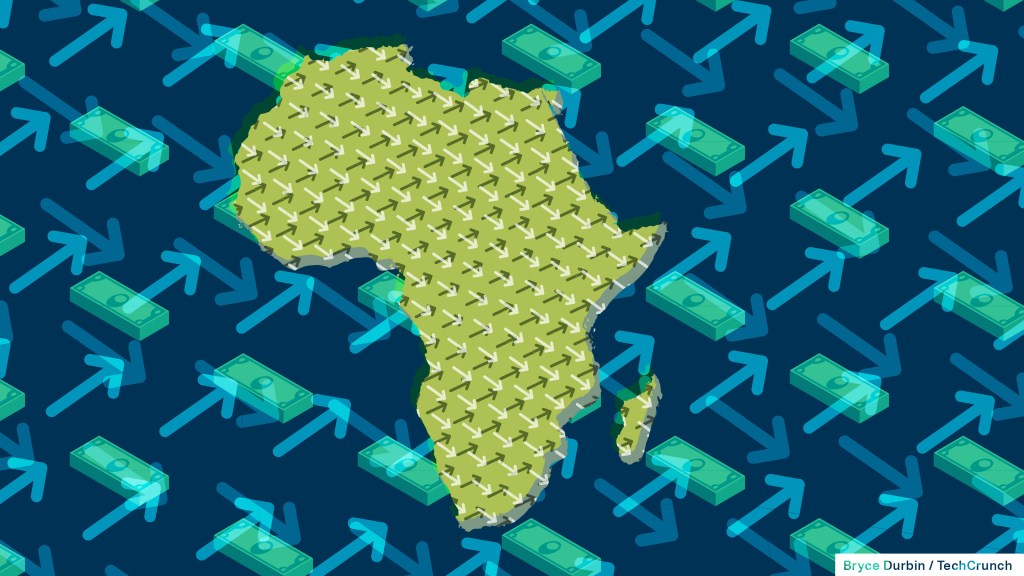Even as VC funding dries up across the world, development finance institutions (DFIs) are looking to African startups to deploy their dry powder.
British International Investment (BII), a DFI from the U.K., told TechCrunch recently that it will deploy $500 million into startups by the end of 2026, and half of that amount has been earmarked for African tech companies. In addition to backing VC funds in the region, the organization aims to make more direct equity investments in startups, adding to the four African companies it invested in last year.
Formerly known as the Commonwealth Development Corporation, the BII is not alone: The World Bank’s International Finance Corporation (IFC) and the Netherlands’ Dutch Entrepreneurial Bank (FMO) have each invested in more than 10 startups over the last four years. The IFC also recently launched a $225 million fund to back early-stage startups in Africa, Central Asia, Middle East and Pakistan.
Often attached to countries that had colonized big parts of the continent and still have financial, social and historical ties to countries in the region, these funding initiatives are complementing and offsetting slowing investment from VC funds and other institutional investors.
“It’s a paradigm shift, where ‘development finance’ looks at private enterprise as a vehicle of socio-economic development,” said Dario Giuliani, founder and director of research firm Briter Bridges.
BII’s decision follows plans to double down on its efforts and invest some $6 billion in Africa across five years and invest $100 million in Egyptian startups. The organization has invested in eight African startups since 2020.
But what’s driving these organizations to invest in Africa despite investors across the world preferring to invest only in safer bets? It seems they’re attracted to tech that enables wider socio-economic development because it offers a scalable and efficient way to make an economic impact.
Investing in tech to meet development goals
Usually deploying capital from national or international development funds, DFIs back development and private-sector projects in less industrialized economies to promote job creation and sustainable economic growth. Keen to align with those missions, these organizations seek to back tech startups that can make an impact — for example, tech that grants and increases marginalized populations’ access to financial services, food and energy.
Marieke Roestenberg, manager of the FMO ventures program, told TechCrunch that startups that it backs, like Farmerline, have demonstrated their ability to reach people in rural areas and at the bottom of the economic pyramid, offering immediate impact.
“A couple of years ago, we started to see developments in the fintech space, and we realized the enormous development potential of tech-enabled business models to generate the ability to reach segments of the population that we, as a development bank, always tried to reach but found difficult,” she said.
Infrastructure fund Africa50, which led Poa Internet’s $28 million Series C last January, said that addressing the continent’s most pressing infrastructure challenges like internet access required “new approaches and collaborative efforts” with startups.
Indeed, the continent is perceived by investors and limited partners, especially DFIs, to be more attractive for investment than other emerging markets, according to a survey of private equity professionals.
A long-term approach
Unlike most VCs, these institutions offer larger ticket sizes and “patient” capital (long-term backing) that enable founders to plan across a relatively longer time horizon and focus on building their startups. Such an approach also lets DFIs support their portfolio with advice and technical expertise while mobilizing capital from other institutional and private investors.
FMO’s venture program, for instance, is a 17-year strategy backed by an initial $200 million kitty. So far, it has deployed 40% of its funds into three VC firms and made 12 direct investments in startups across Africa. The FMO expects to back 10 funds and 25 startups with its first tranche.
For direct investments, FMO’s tickets range from $500,000 to $3 million. It also participates in follow-on rounds but caps total exposure at $10 million.
Roestenberg said portfolio companies that show great performance can access additional funding from FMO’s balance sheet. This is in line with most other venture programs initiated by DFIs.
The BII has a bigger investment mandate: it injects a minimum of $2 million into startups and its cap is at $250 million. It seeks startups that facilitate and increase access to basic needs, enhance agriculture value chains and accelerate climate innovation. Like the FMO, the BII co-invests alongside fund partners and also participates in rounds led by “reputable” VCs.
“We closely follow them and their companies and then we look to invest directly,” said Ross Strike, investment manager for venture capital at BII. “The Series B stage is usually where we start with small [investments], typically as co-investors alongside our fund partners. We then look to increase our investment over time as companies scale and become de-risked.”
While most DFIs focus on growth-stage scaleups, IFC’s latest fund is targeting early-stage startups with equity and “equity-like” investments to help “grow them into scalable ventures that can attract mainstream equity and debt financing,” an IFC spokesperson said.
The IFC spokesperson said portfolio companies will also benefit from access to resources and expertise from the broader World Bank Group and its partners. “This includes potential follow-on investments from other parts of the WBG, access to advice from its industry specialists in sectors like agtech, climate, edtech, gender, health tech, mobility and AI/ML, and access to the WBG’s network of partners for commercial opportunities and knowledge sharing,” they said.
However, DFIs are also affected by global economic downturns and, in line with venture capital and private equity investors, also plan to pay more attention to valuation and sustainability before they invest.
“We do see the changing markets and dynamics, but our appetite for new investments hasn’t changed. However, we are applying a bit more scrutiny on the valuation and profitability,” said Roestenberg.































Comment